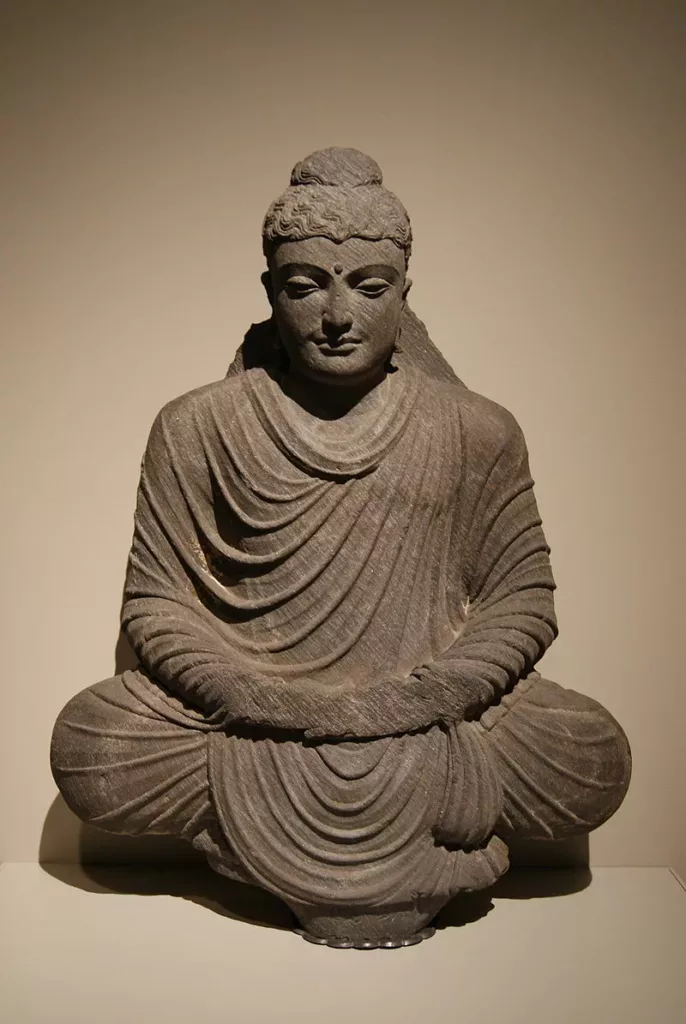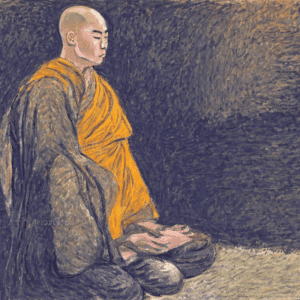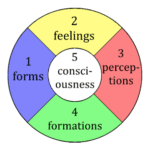
Mindfulness is the mind’s inherent ability to focus on a specific object. The training is to enhance, deepen, and extend the focus. The purpose is to learn, to understand, and to realize, even the most subtle, difficult, complex, or profound objects of knowing.
Otherwise, what is mindfulness? It’s a Global Movement. In the 21st century, mindfulness without borders has arrived. It’s an accessible practice, advocated for its capacity to enhance mental well-being. People worldwide are engaging with it.
Secrets of Meditation for Anxiety
Like millions of people, you may have suffered from anxiety for years. Meditation, yoga, peaceful music – it never works. It takes too long, and it’s not stable. Why? Because peace is treated as a cause for freedom, but it’s not – it’s the result. The cause to free yourself from anxiety is completely different.
Click now to Overcome Anxiety for good.
Table of Contents
What is Mindfulness and how does it work?

Mindfulness is focused attention. If you’ve ever become completely absorbed in something – a movie, a project, cooking – then you’ve used mindfulness. It’s important to know that mindfulness is a native skill of the mind. It’s kind of a defining trait of the mind. The point of having a mind is to relate inner and outer. Mind focuses the subject or ‘self’ on the object or other – phenomena.
Even animals use it. Watch a cat hunting. That is mindfulness at work.
Does Mindfulness Actually Work?
In the midst of its popularity, skepticism plays a significant piece. But does mindfulness actually work?
The Science of Mindfulness
One of the pioneering figures in mindfulness research, Jon Kabat-Zinn, developed the Mindfulness-Based Stress Reduction (MBSR) program, which has been widely adopted in clinical settings. Research on MBSR and similar programs has demonstrated their effectiveness in treating various conditions in the following list.
Scientific research over the past few decades provides strong evidence that mindfulness does, indeed, work. Studies have shown that regular mindfulness practice can lead to a wide range of physical, mental, and emotional benefits:
How to meditate like a yogi
and enter profound samadhi
- reduced stress
- improved focus
- enhanced emotional regulation
- improved well-being
- Better breathing habits
- lower anxiety
- decreased depression
- positive mood
- management of pain
- immune system optimization
Can mindfulness be harmful?
While it’s widely seen as beneficial, the question arises – can mindfulness be harmful? We’ll debunk some common myths and offer insight into responsible practice.
Mindfulness and Vulnerability
Mindfulness can unearth deep emotions and traumatic memories. Although dealing with these experiences can be therapeutic in the long run, the process can be unsettling and distressing. For individuals with a history of severe trauma or those struggling with certain mental health conditions, mindfulness can act as a double-edged sword.
Mindfulness Without Guidance
Another potential pitfall is attempting mindfulness without proper guidance. Self-guided mindfulness practices can sometimes lead to confusion or frustration. Understanding the nuances and techniques of mindfulness often requires expert guidance to prevent disillusionment.
Mindfulness and Dissociation
In some cases, individuals may experience dissociation—a disconnection from their thoughts, feelings, and surroundings—while practicing mindfulness. This can lead to feelings of disorientation and even anxiety, especially if one is unprepared for such an experience.
Mindfulness Addiction
Yes, you read that right—mindfulness addiction. While it’s not a substance, some individuals become so engrossed in their mindfulness practice that it can disrupt their daily lives. They may find it difficult to focus on anything else, including work, relationships, or responsibilities.
The Need for Balance
So, can mindfulness be harmful? It depends on the approach. Mindfulness itself isn’t inherently harmful, but like any tool, it must be wielded mindfully. The key to preventing harm is balance and self-awareness. Seeking professional guidance when dealing with complex emotions or a history of trauma is often the best approach. Remember, mindfulness should enhance your life, not dominate it.
Mindfulness in Daily Life
The power of mindfulness lies in its simplicity. It doesn’t promise to eliminate life’s challenges, but it equips us with the tools to face them more skillfully. By cultivating awareness of our thoughts, emotions, and bodily sensations, we gain a deeper understanding of ourselves. Surfing the chaos: self-awareness, pulled from mindfulness practice, enables us to respond to life’s stressors with more resilience and a measured perspective.



Dispelling the Myths
Some misconceptions to correct: Mindfulness isn’t a magic pill that will instantly solve all your problems. It requires consistent practice and patience. Moreover, mindfulness is not a one-size-fits-all solution. What works for one person may not work for another. The key is to find a mindfulness practice that resonates with you and your needs.
Your Mindfulness Journey
So, does mindfulness actually work? The answer is a strong yes but with nuances. Mindfulness is a lifestyle, not a one-off. An invaluable tool for enhancing your quality of life, it demands dedication, practice, and expert guidance. The best way to discover its benefits is to give it a try. Explore different mindfulness techniques, and see how they resonate with your unique experiences and challenges.
In the end, whether mindfulness “works” for you depends on your willingness to embrace the practice, make it a part of your daily life, and open yourself to its potential to transform your relationship with the world around you. It’s an opportunity for self-discovery, personal growth, and a more mindful and meaningful existence.

Flow, the profound mental state, also called Peak Performance, can be attained with meditation and can be ‘triggered’ at will, with enough discipline. Guide to Flow Mastery will teach you how.
Mindfulness and Buddhist Psychology
The link between mindfulness and Buddhist psychology is an intrinsic one, rooted in the ancient teachings of Buddhism. The mind’s power can transcend suffering and attain enlightenment. In Buddhist psychology, mindfulness is a pivotal component of the Noble Eightfold Path, which guides individuals toward liberation from the cycle of suffering.
It is embedded in the concept of “Sati,” which means “mindfulness” or “remembering.” Practitioners are encouraged to be fully present, observing their thoughts and emotions without judgment. This self-awareness and self-observation are fundamental to the process of understanding the mind’s patterns, ultimately leading to greater clarity and transformation.
The synergy between mindfulness and Buddhist psychology doesn’t end with self-awareness; it extends to the idea of interconnectedness. In Buddhism, interdependence proclaims that all things and beings are interconnected. Mindfulness involves recognizing and embracing this interconnectedness. This leads to compassion and empathy, enabling individuals to open mindfulness inwardly and outwardly.
Mindfulness re: Buddhist psychology is not just about personal insight; it’s about realizing the interdependence of all life and striving for the alleviation of suffering, not just for oneself but for all sentient beings. This integration of mindfulness and Buddhist psychology offers a profound path to inner peace and a more compassionate world.
Mindfulness vs. Buddhism: Distinguishing the Two
While mindfulness and Buddhism share a deep-rooted connection, they are distinct concepts. Mindfulness is a mental practice that can be embraced independently of any religious or philosophical belief system. It is essentially the art of being fully present, observing thoughts and emotions non-judgmentally.
Mindfulness practices have found a place in various secular contexts, including healthcare, education, and corporate wellness, offering stress reduction and enhanced well-being. On the other hand, Buddhism, a spiritual tradition founded on the teachings of Siddhartha Gautama (the Buddha), incorporates mindfulness as a key element within its broader framework. While mindfulness plays a crucial role in Buddhist practices, Buddhism encompasses a rich array of doctrines, rituals, and ethical guidelines that extend far beyond the practice of mindfulness alone. Therefore, while the two are interconnected, they are not one and the same.
As mindfulness spreads across the West, it undergoes cultural adaptations. The Western world has embraced and modified this practice.
Mindfulness Without Buddhism: An Inclusive Approach
Mindfulness is universal and transcends cultural and religious boundaries. Anyone, anywhere can practice it no matter their belief systems. Mindfulness without Buddhism is a secular and inclusive approach to cultivating self-awareness, reducing stress, and enhancing overall well-being.
Mindfulness is a versatile tool that can be tailored to an individual’s unique needs and preferences, devoid of any religious or dogmatic associations. Many mindfulness programs and courses are designed for individuals seeking a purely secular and practical approach to mindfulness, emphasizing its mental and emotional benefits without any religious affiliations. This approach underscores the adaptable and inclusive nature of mindfulness, welcoming people of various backgrounds to engage in a practice that enhances the quality of life while respecting their diverse beliefs and perspectives.
In the end, what is mindfulness? It’s a multifaceted concept, adaptable, and accessible. It bridges cultures, questions myths, and enhances lives. It’s a practice worth exploring and understanding in its entirety.
FAQ
Is the mindfulness movement Buddhist?
The mindfulness movement is Buddhist historically as it dates back to the Buddha. However, it is a totally secular aspect of our basic being, so in practice, it is open-source, as it were.
What are the 4 concepts of mindfulness?
The 4 concepts of mindfulness are body, feelings, mind, and dharmas.
What religion is mindfulness from?
Mindfulness is from Buddhism, specifically Buddha himself in the Satipatana sutra.
Is there a dark side to mindfulness?
The Dark side to mindfulness comes as post-experiential anxiety or depression. This is almost always temporary, but it can be extreme, depending on the intensity and duration of the mindfulness practice. An hour or two a day is invariably benign.
Who should not practice mindfulness?
People with intense psychological traumas, PTSD, or schizophrenia should not practice mindfulness without strong guidance.

May all beings be happy
May all beings be peaceful
May all beings be safe
May all beings awaken to the light of their true nature
May all beings be free







